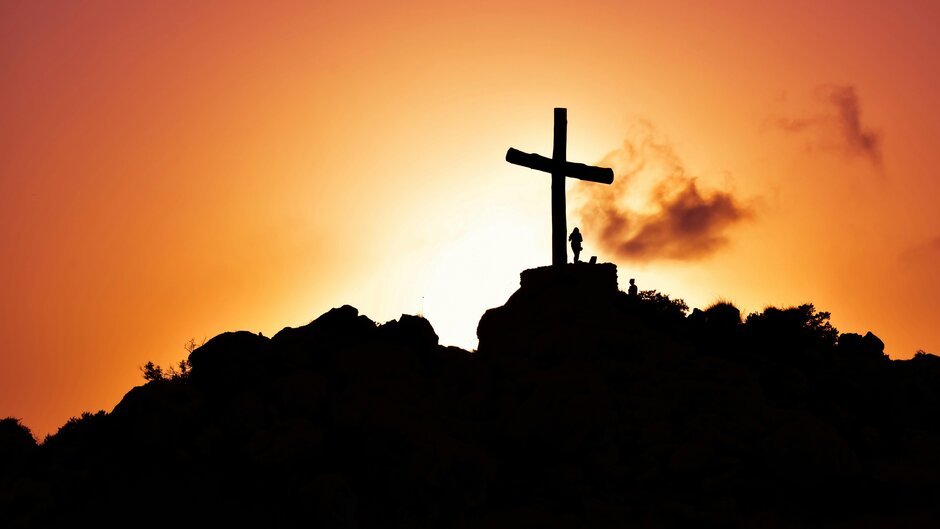Pilgrimage
Pilgrimage opens us up to connecting with God as we journey through the world.

Pilgrimage today is understood as an opportunity to step aside from our daily routines and distractions and to focus on something deeper in us, rather than the traditional practice of making a journey to a specific religious site or shrine.
A pilgrimage may take a few hours or a few months. It is recognised as a journey rather than a destination, and can be a physical journey or one that takes place entirely in your thoughts or imagination. The act of simply putting one foot in front of another can become prayer, just as pilgrimage can be the metaphor for reflecting on how the physical aspects of our daily lives are linked to our spiritual journey.
As more and more people are seeking new ways to understand a spiritual longing or interest, many of them are turning to pilgrimage as a form of prayer, to open up new ways of connecting with the world around us and noticing and meeting God.
"The transformation of a routine journey into something profound and nourishing." (Steve Aisthorpe author of ‘The Invisible Church' and ‘Rewilding the Church' and Leader at Kilmalieu Retreat Centre)
Pilgrimage can become a spiritual practice, with a meaningful impact on our physical and mental wellbeing and guide us on an inner journey.
The interest in and practise of pilgrimage has been gaining popularity throughout Britain in recent years and it clearly touches a chord in people across society and from any or no religious background. Many local churches support travellers along the pilgrim routes across Scotland, and an increasing number of church groups are organising their own pilgrimages and reflective walks.
How to go on a pilgrimage
You can go on pilgrimage alone or with others; regularly, or once in a lifetime.
Whatever form our pilgrimage takes, we can reflect on our experience to discern how it affects and informs our lives as we return to our routines.
While there is no ‘official' way to make a pilgrimage, we set out with the intention of noticing God as we go.
"A way of travelling with a heightened expectation of drawing closer to God." (Gillian Straine Director of GoHealth and author ‘Cancer: A Pilgrimage Companion')
As you journey, you may wish to:
- Choose a bible verse, a quotation or a particular question to turn over in your mind as you go, or discuss with any companions.
- Allow your imagination to run freely as you go and follow the thoughts that are prompted by the people, places or sights you encounter on the way.
- Walk, and stop to pray as you feel led.
- Follow a pilgrim route, such as the Fife Pilgrim Way.
Resources
Below are some ideas and resources that might help or inspire you as you plan or set out on your journey:
As you go on a pilgrimage or reflective/prayer walk, it can be meaningful to frame the time with God by marking your beginning and ending with a prayer.
Here are some words that you may find helpful:
A prayer as you set out:
Journeying God,
You walk with us where we walk,
You sit with us where we sit,
You dwell with us where we choose to pause.
May we recognise Your presence
in this time of wandering, wondering and noticing.
Guide our coming and our going,
our thinking and our praying. Amen
A blessing at the end of the day (from Pray Now)
May God embrace you
in your coming
and in your going;
in your journeying
and in your welcome home.
Amen
Organisations that promote or lead pilgrimage
Further Reading
Pilgrimage essays (Church of Scotland Ascend)
Travels with a Stick: A Pilgrim's Journey to Santiago de Compostela by Richard Frazer. Richard Frazer reveals how the pilgrim journey can be nourishment for the human heart.
Cancer: A Pilgrim Companion by Gillian Straine. Cancer survivor Gillian Straine proposes that this journey through illness, pain and anxiety be reconceptualised as a pilgrimage of discovery.
Bigger and Wilder: Life, loss and learning to be a pilgrim by Jill Baker. This book encourages us to step into the pilgrim spirit and discover more about the big, wild God who constantly calls us to follow.